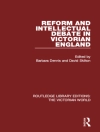A generally acknowledged characteristic of modern life, namely the temporalization of experience, inextricable from our intensified experience of contingency and difference, has until now remained largely outside psychology’s purview. Wherever questions about the development, structure, and function of the concept of time have been posed – for example by Piaget and other founders of genetic structuralism – they have been concerned predominantly with concepts of ’physical’, chronometrical time, and related concepts (e.g., ’velocity’). All the contributions to the present volume attempt to close this gap. A larger number are especially interested in the narration of stories. Overviews of the relevant literature, as well as empirical case studies, appear alongside theoretical and methodological reflections. Most contributions refer to specifically historical phenomena and meaning-constructions. Some touch on the subjects of biographical memory and biographical constructions of reality. Of all the various affinities between the contributions collected here, the most important is their consistent attention to issues of the constitution and representation of temporal experience.
Om författaren
Jürgen Straub is Professor of Psychology at the University of Chemnitz. He was research director and member of the management committee at the Institute for Advanced Studies in the Humanities Essen (Kulturwissenschaftliches Institut Essen, KWI) from October 1999 to September 2001. Beginning in April 2004, he will lead the research group Intercultural Communication – Intercultural Competence at the KWI. His research topics include the psychology of cultural practices, methodology of qualitative research, and historical consciousness.












